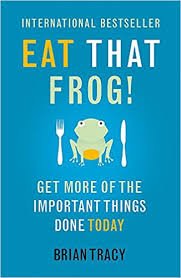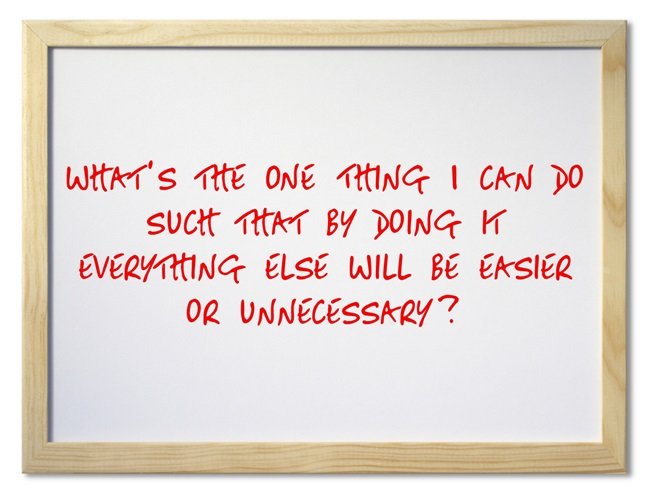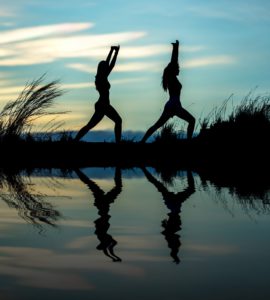What Is Self-Care and Where Do I Start?
For centuries health has been all about responding to the negative things that come up. When you got sick, you took medicine. If you had an accident, you went to rehab. Acne? Put on the newest cream. Don’t get me wrong. I’m not saying that these things aren’t important or necessary as somethings are unavoidable. However, shouldn’t we be doing our best to prevent as many negative things as possible from happening and not just reacting to and curing them when they do happen? That’s where self-care comes in. So, what is self-care, why it’s important and where can you start?. Keep reading to find out!

Note: Self-care is a massive umbrella term that deals with every aspect of your life, but not all of them will be relevant to you. This tutorial will take you through the reasons that freelancers or small business owners like you should think about incorporating self-care into your daily life and a 5 ways you can do it today.
What is self-care?
Just so we’re all clear and on the same page let’s define self-care: What is self-care? I’ve come to adopt the definition from Oxford Dictionary that says self-care is:
The practice of taking an active role in protecting one’s own well-being and happiness, in particular during periods of stress
So let’s break that definition down into its different sections:

- The practice of taking an active role…
- Self-care is something that you must consciously focus on doing. It doesn’t happen by itself, and it doesn’t happen without a plan.
- …in protecting one’s own well-being and happiness…
- Our well-being is a combination of every aspect of our lives (professional, personal, spiritual, social, etc.). Self-care is putting a system, plan or routines in place that will aid you in safeguarding every aspect of your life.
- …in particular during periods of stress.
- If you’re like most freelancers or small business owners periods of stress are 85% of your waking hours. A plan only works if it helps you when you need it most. A self-care plan is easy to follow when you only have few responsibilities and all the time in the world. But if your life is full and busy with having 2 toddlers screaming, dogs barking, clients calling, and a small business to run all at the same time. That’s why you need a plan.
What is self-care not?
What I think is interesting about this definition, and self-care, in general, is that it’s about protecting your well-being. It’s not about fixing problems, it’s not about fixing things that go wrong, and it’s definitely not about pampering yourself in every way possible (although a little pampering never hurt anyone).
What is self-care? It’s not about being selfish
Self-care is about putting yourself first, so you’re in a place that you can then help others. I’ve recently read the perfect analogy for putting yourself first, and if you’ve ever travelled by plane, you’ve heard it a few times already.

This is brilliant but it also precisely explains why putting yourself first is the best thing for the greater good. If you were to attempt to put on your children’s mask, or friend’s mask first, you’d very quickly start to fumble and lose consciousness. In the end, you’d be unable to help those you love because you’re not in a position to be able to give 100% of yourself.
If you’d only taken the 10 seconds to put on your own mask, then you would have an unlimited amount of oxygen to help those around you. That’s what self-care is.

What is self-care? It’s not about adding more to your agenda
Self-care is about prioritising what you need to do and outsourcing what others can do. Let me explain. Unlike men, not all activities are created equally, and they do not have the same return on investment (ROI).
For a simple example let’s ask ourselves this one question:
- Which helps to grow your business more, client outreach or Tweeting?
99% of us (unless your Twitter Marketer) should say that client outreach is a much more important activity than Tweeting. Does Tweeting help? Of course, if you’re trying to grow your brand and get your name out there. However, a one-to-one outreach plan where you run a potential client through what your business offers and how you can help them personally will give you a much higher ROI.
I’ll talk about how to prioritise your activities in the Self-Care Strategies section below.
What is self-care? It’s not an “Emergency Plan”
 If you’re on the brink of burn out because you’ve taken on too many clients, you can’t handle the workload, your babysitter just cancelled, your partner is working late, the kids need to be picked up from soccer practice, the washing machine is on the fritz and you have someone coming to look at the upstairs bathroom sink, then it is most definitely too late to implement a self-care plan.
If you’re on the brink of burn out because you’ve taken on too many clients, you can’t handle the workload, your babysitter just cancelled, your partner is working late, the kids need to be picked up from soccer practice, the washing machine is on the fritz and you have someone coming to look at the upstairs bathroom sink, then it is most definitely too late to implement a self-care plan.
Self-care will not help you solve any of those problems today. It’s a system that helps to prevent them from ever happening. If I had a someone who came to me with this problem I would say:
- Get rid of your worst client (you know who they are)
- Talk with another parent to create a rotating carpool schedule
- Make sure to have the numbers of other babysitters on hand in case of an emergency
Just those three small solutions would free up your time to be there for when the plumber arrives, help you not worry if your partner needs to work late and you’d probably have time left over to start dinner.
Self-care is prevention, not reaction.
Let’s take a second to look at a few more examples just to really hammer home the concept of what is self-care:
- Which would you rather do? Stretch for 5 minutes daily or live with a sore back your whole life?
- Sit and meditate for 10 minutes every morning or have the high blood pressure, sore neck, clenched jaw and drained feeling that comes with chronic stress?
- Prepare a weekly food menu every Sunday night or get to the store, not know what you’re going to buy and reach for a bag of chips?
Most, if not all, of the negative decisions and aspects in our lives, can be prevented if we practiced a bit of self-care.
What is self-care and why is it important?
I’m hoping this is a bit self-explanatory at this point, but I’ll do my best to clarify any misconceptions or doubts you may have about why self-care is important.
We are currently witnessing in one of the greatest business and possibly intellectual minds of our time go through a really rough patch, and it all has to do with self-care and prioritization. I’m talking about Elon Musk. If you’ve never heard of Elon Musk, then you must be incredibly busy, and so this post is perfect for you.
Who is Elon Musk?

Elon Musk founded X.com (which later became Paypal), SpaceX in 2002 and Tesla Motors in 2003. I believe if he had a motto it would be something like this “Save the world but have a backup plan just in case”.
He revolutionized the way we pay and transfer money around the world with PayPal. He also wants to inhabit Mars and eliminate the use of fuel in cars, thus decreasing greenhouse gases and saving the planet (small ambitions, right?). However, as you might have seen recently, he had a really tough 2018 where he brought controversy on himself by discussing taking Tesla public at “$420” (an open reference to weed), calling out the divers who saved the soccer team in Thailand and smoking weed on a live radio broadcast. All of this has led to him relinquishing his position as Tesla Chairman.
Where’d he go wrong?
Why do I bring this up? Because he obviously has no time for self-care or to center himself on a daily basis. Now news outlets are referring to him as “out-of-control”. His decision-making skills have faltered, his openly smoking weed seems to me like an unhealthy coping mechanism for the amount of stress he’s put himself under, and people are started to lose faith in him, which causes stock prices to drop.

This is an incredibly unique story as I’m guessing your freelance company probably isn’t being sold on Wall Street, you don’t have 100’s of employees, and your goal isn’t to save the human race. However, what’s happening to Musk can happen to any one of us if we take on too much.
Self-care is about preventing these types of judgment lapses and burnout by “protecting one’s own well-being“.
Why is self-care important
As a freelancer, you are the face, voice, and brain of your company. If your decision-making skills decline or you adopt unhealthy coping mechanisms to the large amounts of stress we face on a daily basis than your company, like Tesla, will begin to falter. Self-care is about helping you to stay at 100% so you can lead your company, interact with clients and produce the best work you can.
What is self-care and Where do I Start?
So we’ve discussed the questions, what is self-care and why’s it important. Now we’ll move onto, Where do I start? Many believe that self-care and their business plan must be separate. However, for me, that’s far from the truth. If you work as a full-time freelancer, you’ll most likely be working 8-10 hours a day to get your business off the ground. That, plus doing the essentials for survival (sleeping, eating, showering, etc.) leaves very little time for self-care. That’s why it’s imperative that you include self-care into your daily work routine as well as your business plan.
Implementing self-care into your business does not have to be complicated. It certainly doesn’t have to be adding anything to your to-do list either (however creating new healthy habits obviously has a positive effect on your wellbeing). Let’s break down a few simple self-care mindset changes and strategies that will set you on the right path.
1. Your business is a marathon
If you’re anything like me, you want things done yesterday. However, all that mindset does it put unnecessary stress on you, and it stops you from performing at your best. I hope you’re in this freelance thing for the long haul because the benefits greatly outway the negatives (at least in my opinion).

One thing all new freelancers need to realize is that it’s going to take time. It takes time to earn clients trust, it takes time to get ranked on Google, it takes time to grow a following, it takes time to perfect your skills. There may be some freelancers out there who opened their doors (hypothetically speaking) on a Monday and were successful by Friday, but that’s just not the reality for the majority of us. I worked afternoons and weekends for a year while studying for a Masters to get enough clients to be able to make it alone.
I’ve come to learn that that’s actually a pretty normal amount of time as well. One podcast that I really enjoy is “Smart Passive Income” by Pat Flynn, and he mentioned on one of his podcasts that it took about 18 months for him to start making an income on his affiliate website. If you think long-term you begin to realize that killing yourself today won’t help you down the road. Find the line between working hard and over-working.
2. Learn to say no

As a new freelancer, we want to say yes to everything! We want every single job and all the money we can get. That’s just not a sustainable model though. Never saying no to anything will drown you in clients, work, passed deadlines and a ton of over things that you might not be able to get out from under. One bad review from a client in this day and age can ruin a company.
Take Elon Musk as an example. He wants to make humans a multi-planet species while saving the one we’re ruining and he’s paying the price for it. As I said, your ambitions will obviously be much smaller, but you didn’t make hundreds of millions of dollars from PayPal either. Understand how long things take and don’t over-extend yourself. There are more important things than an extra zero in your bank account. If that’s all you’re looking for, then go work on wall street. Freelancing isn’t for you.
3. Eat that frog!

If you haven’t read the legendary book by Brian Tracy, I highly recommend that you pick it up. He answers the question, what is self-care by discussing how there’s never enough time to finish all of the things on your to-do list, and there never will be. You’re just one person and there’s only so much time in the day.
You need to learn to prioritize your decisions and do the things that will have the greatest impact right now. I’m sure you’ve heard of Pareto’s Principle or the 80/20 rule: 80% of your results come from 20% of your actions (and vice-versa). One of the best things you can do for yourself, your company, and your self-care is to find out what that 20% is and repeat it as often as possible. Running in circles and doing things that don’t get results is a major stressor and stress comes with a lot of nasty side effects. It’s a slippery slope you really don’t want to start on.
Prioritize, prioritize, prioritize!
4. Simplify decision-making
You may be asking yourself how do I prioritize or how do I decide which is the most important task? If that’s the case then congratulations! You’re already starting to change how you think.
There’s a straightforward question I ask myself every morning that I got from another great book (yes, it’s a theme in my life) and it goes like this:

That quote is by Gary Keller in his incredibly insightful book, The One Thing. Obviously, the answer to that question will be different for everyone who’s reading this article. It can also change on a daily or even hourly basis as new work comes in, you have new ideas, etc. However, by answering that question to the best of your ability, you will slowly but surely close in on your 20%. It forces you to think about the results your actions actually have. It’s not about the most entertaining thing or the thing you do best but rather the “One Thing” that will make all the rest of your activities easier or unnecessary.
5. Win the Morning, Win the Day
What does the first hour of your day look like? Are you someone who puts on a pot of coffee and sits down to watch the news? Do you immediately open your social media account or do you prefer to jump right into answering emails? Whatever you do the first hour of your day sets the tone for the rest of the day.

If you watch the news with all of its negativity first thing in the morning how do you think your perspective will be going into that day? If you see a bunch of good-looking Instagram models on beaches in Bali, how will you see your own life? Undoubtedly, if you answer e-mails first thing there will be one that ruins your mood for the day. These types of activities, first thing in the morning, are destroying your motivation.
The morning is your time without distractions, without kids, without phone calls. You need that time for you, and you need to protect it. There’s a very simple routine you can follow that’s outlined in the book “The Miracle Morning”, by Hal Elrod. The acronym is SAVERS, and it goes like this:
S-ilence (meditation, prayer, breathing, etc.)
A-ffirmations (positive words you tell yourself)
V-isualization (imagine yourself being successful going through your day)
E-xercise (bodyweight exercises or stretching)
R-eading (preferably non-fiction and positive)
S-cribing (writing or journaling to process your thoughts and plan out each day)
What is self-care?
So, we’ve gone through and answered the questions: what is self-care? Why’s it important? Where do I start? Self-care is a series of routines or systems you put in place to protect your overall well-being. It’s a guide you follow that helps you to prioritize your health so you can then perform at 100% in whatever your freelance career might be.
We discussed how not taking an active role in your self-care or taking on too much work at once can run you down and you’ll ultimately start making poor decisions just like our friendly, weed-smoking, neighbourhood genius and rocket scientist, Elon Musk.

Lastly, I broke down a few easy ways to implement self-care strategies into your life. Altering your perspective just slightly by thinking about your business as a long-term investment will release a lot of the pressure you feel from having to get everything done right now. Also, creating and sticking to a morning routine will set a positive and successful tone for the rest of the day. Rather than fight with e-mails or the negativity of the news first thing in the morning, start your day with a win, and that momentum will carry through into your work and the rest of your life.
Hopefully, this has thoroughly answered your question of what is self-care. If you ever have any questions about self-care or prioritizing your health, please, leave them in the comments below!
What is self-care to you? Does my definition match yours?
14 Replies to “What Is Self-Care and Where Do I Start?”
In my opinion, too many of us seem to put our overall well-being on the back burner and just be pleased we’ve got through the day of work – no way to live really!
This was a great article that covers a subject most professionals should have some idea about…but probably don’t. Out of all the self-care routines or systems you have covered above – which do you think is the most important/effective?
Hey! You’re spot on most professionals should understand the basics but unfortunately, it’s not something we’re taught, either in school or professional world. The most important system or trick that has worked for me is definitely creating a morning routine I stick to. It’s only 30 minutes but it grounds me and prepares me for the workday ahead. My routine includes (make bed, set coffee, stretch while coffee brews, drink coffee, meditate 10 min, journal/plan day ahead) It’s simple but has become my favorite part of the day. Thank you for stopping by!
This was a very interesting read! I totally agree that self-care is very beneficial not only for yourself but also for others. However, it doesn’t look like an easy thing to do as it requires a bit of discipline, as we have the tendency not to prevent, but to respond to things as they come.
I did get some very cool insight out of this article, and I hope I can someday be strong enough to actually apply it!
Hey!
Thank you for stopping by! You’re spot on when you say that we tend to respond to things as they come instead of preventing them. That’s a huge thing with self-care and you’re right it does take a bit of discipline, but I don’t think it’s any more than eating well, exercising, saving money, and all of the other things we “should” do but many don’t.
You can definitely apply it today if you wanted to! Good luck!
I love that you make sure to emphasize the point that self care is not selfish. I have felt in my own life and I know a lot of others do too, that if I take any time for myself or focus on my own needs than I’m being selfish. It’s honestly hard not to feel that way. I am part of a very service focused church so I think the culture of that has contributed to that mindset. But what you said it’s so true! If you can’t take care of yourself, how can you take care of anyone else?
Hey! You’re spot on with thinking that we believe that we either have to be giving all the time. If we run out of thought how can we give more. I love the saying “you can’t pour from an empty cup”. I think that says it all. It has to be refilled eventually and that’s where self-care comes in. Thank you for stopping by!
Hello Andrew,
I really enjoyed this well structured and thoroughly researched article. In a world that is becoming more and more “me first” obsessed, it is interesting that you are able to show that while the self-care concept is centered around self, it is not a selfish concept. Placing the oxygen mask over your own mouth is a short term, self focused action that will enable you to help others as soon as the base from which you work form is solid.
Could you possibly provide some pointers of firstly combating the negative association or perception on buying out time for oneself and secondly how I can personally identify some red flags so as to best focus my energies.
Thanks again for a great article and I look forward to reading your reply.
Rich
Hey Rich,
Self-care is definitely meant to help improve your life first so you can help those around you. “You can’t pour from an empty cup”. I think the negative association comes culturally where we’re told that “the only life living is the one you live for others” (or something like that). That’s true, but in order to live a life for others, you must first take care of yourself. You don’t see people who work paycheck to paycheck helping others (very often) because they’re too focused on providing for themselves and their family. Only those with who have things to give away can do so. Success isn’t a negative if you want to use it to help those around you.
Some red flags for me are definitely those things we waste time on like social media, t.v., negative thoughts, negative relationships, unhealthy coping mechanisms and a whole slew of other things. Focus your energy on small, positive changes as that’s really the only sustainable approach to improvement. I hope that helps.
Thank you for taking the time to write a comment! Take care!
Hello Andrew,
Thanks very much for getting back to me so fast. Applying what you suggest will be a difficult task as I will have to sit and write these things down to get a good overview of where changes need to be made.
I appreciate the assistance and thought provoking article.
Rich
Hey Rich,
The pleasures all mine. Unfortunately, self-care isn’t easy, and it takes a lot of conscious effort to make change, but I’ve found that in the end, it’s definitely worth it. Especially if you have lofty goals that you’d like to reach. If there’s anything else I can do for you please, don’t hesitate to ask. Good luck with your self-care journey!
Thanks for this post. I need to perform at 100% in my health and in my business. Your 5 points on self care are just spot on. I will definitely be reading this post again. I need to make plans, put those plans into action in my health and business and I need to make sure these plans will work for my health and for my business.
Hey!
Thank you for stopping by and you’re definitely not alone when you say you need to improve. I think we all do, myself included! However, the fact that you know you need to improve and are willing to put things into motion is a great first step! Keep it up and let me know if there’s anything I can do to help!
Hi,
Thanks for this great article on What is Self-Care. You did explained well in details on why Self-Care is important in our lives and I did found this article full of useful information that made me realized that by learning how to prioritize on everything will greatly impact our lives and will release a lot of pressure that we feel from having to get everything done right away. After reading your article on Self-Care, it has answered all of my question.
Hey Glenda,
Thank you for stopping by and if you ever have any more questions on self-care, please, don’t hesitate to ask. Take care!